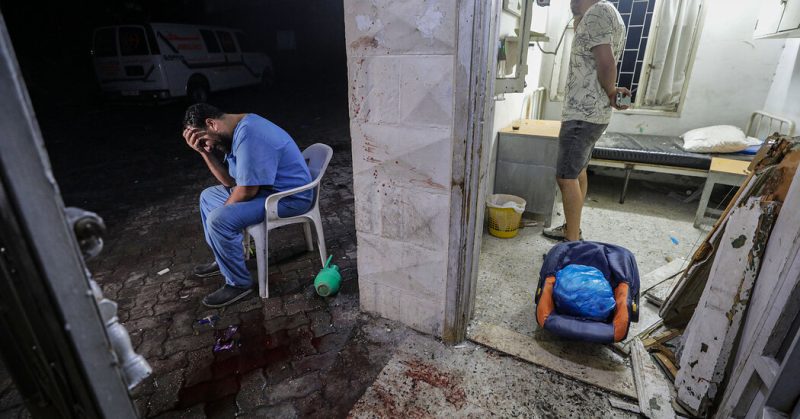In Global Conflict Zones, Hospitals and Doctors Are No Longer Spared

Attacks on medical facilities jeopardize health care not only for those injured by fighting, but also for all those with routine medical needs. On Thursday, Doctors Without Borders (also known as M.S.F., an abbreviation for its French name, Médecins Sans Frontières) withdrew a surgical team from a hospital in Sudan after military authorities blocked all delivery of supplies to the facility. The team had been providing lifesaving trauma surgeries and cesarean sections from one of the last functioning hospitals in the capital, Khartoum.
“It’s so painful, because of the moral distress of the medics,” Mr. Hofman said. They were unable to function without basic supplies, but also profoundly disturbed to cut off one of the last sources of care in a city where fighting has not let up since rival factions of the military government went to war in April.
In Ukraine, Russian attacks have destroyed 10 to 15 percent of medical facilities. The damage is even more far-reaching than it might seem, said Pavlo Kovtoniuk, a former deputy minister of health in Ukraine who now works with a think tank called the Ukrainian Health Center.
“Hospitals symbolize respect for civilian life, and when people see that disregarded they say, ‘We have to get out,’” he said. “We have a huge loss of human capital, with more than six million people now living outside the borders.”
Among those who remain, there is a growing population in need of rehabilitation and psychosocial support, from a steadily shrinking health system.
“This is not a situation of waging war according to the laws of war and the Geneva Convention — this is a completely different philosophy of war where civilian lives are disregarded entirely,” Mr. Kovtoniuk said.
He added: “We are revisiting the rules we thought were a given on regard for civilian life, and Russia has contributed to this feeling, ‘OK, we can do this. We can attack civilian infrastructure as a weapon of war.’”
Ukrainian officials are working with the International Criminal Court to compile evidence from the attacks, Mr. Kovtoniuk said. At least some top Russian officials must be indicted in order to re-establish the principle of protecting health care workers and facilities, he said. Russia has often either said that the facilities it hit were harboring Ukrainian fighters or dismissed the accusations as fake.
In Sudan, M.S.F. says that fatalities caused by neglected medical needs are as great as those caused by violent injuries. According to the World Health Organization, 70 percent of Sudan’s medical facilities are no longer functioning. More than seven million people are now internally displaced and face a cascade of disease outbreaks.








